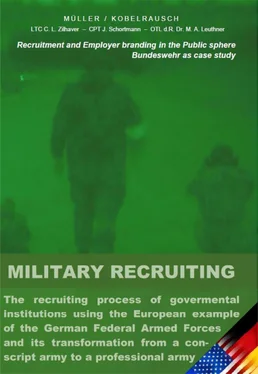In this context, profits are often privatized and made by criminal means, whereas the cost of violence and conflict for society are socialized. Terrorists are not necessarily the source of conflict but they are often ideologically acting as free-riders and beneficiaries of conflicts. The question not asked often enough here is: Who are the monetary beneficiaries and "sponsors" (Schneiderhan, 2013) of crises and conflicts? We may not forget the existing conflicts over our vital raw materials and resources, particularly access to safe drinking water which is already critical in some places. A complex process to maintain or restore security and order results from an early conflict prevention strategy (see fig. 4) characterized by prevention, intervention crisis remedy and precaution.
Nevertheless, the public perceives only a limited picture of external security. Contributes to this, the selected media coverage is an important factor. Because the reader or viewer of news is usually even not directly affected by the use of the soldiers, it is tangent to the bit. A personal involvement often results only from a perceived monetary contribution (government military spending). Therefore a generation responsibility for security as a basic human need (Schneiderhan, 2013) would be something to aim for. It´s to be hoped, that this issue of global public goods further engaged in a social focus.
2.3.2 An imperfect market - (no) place for an army
In the (social 21) market economy, production and consumption is controlled by market prices. The market here has a discovery function and the task to allocate scarce resources the best possible way. But this applies only to private goods, because for both pure and impure public goods, the consumers are not or only partially responsible for the costs of providing these goods. This leads to a market failure: the provision of the public good would be carried out inadequately or not at all in the market (Beck, 2011, Mankiw and Taylor, 2009). For example, in case of national defense by the armed forces, no one in the country can be excluded from the external benefits of the army. An army has a defensive effect for the whole country and therefore for all individuals, even if they may negate - for example as a pacifist - that protection. There exists a “compulsion to consume”. Through these external benefits and non-exclusivity yields the free-rider problem. Because the individual cannot be excluded from consumption and the benefits brought by them, he/she will not be willing to make a financial contribution to the provision of the good if he/she can get it also for free. Here comes the necessity of cooperation, instead of market-based competition. In case of the state it is a forced cooperation or a mandatory community of interests of all citizens to the tax-financed provision of the public good defense. Since this has significant external benefits, many would probably refuse a voluntary contribution for the army and hope that this will be externalized. Thus, an individual rationalism would lead to collective irrationality (see fig. 3). For this reason it is easy to understand that the state does not ask for voluntary contributions, but raises compulsory levies in form of taxes, among other things, to serve the public good.
Therefore, it will be politically negotiated to what extent military security ought to be provided to the society and how to overcome market failures in the provision of the public good provincial / alliance defense by a state intervention in the imperfect market.
2.3.3 Demographics strength, sustainability and recruitment requirements of German Armed Forces in the medium and long-term point of view
Based on the progress report on the reorientation of the Bundeswehr (German Armed Forces report 2013 22) of 8 May 2013, demographics strength is of particular importance regarding the recruitment requirements of German armed forces. The demographic development in Germany has to be considered by the Bundeswehr in its plans and the future demographic trends shall be built. Currently, the Bundeswehr can properly fulfill their personal recruitment needs even after the suspension of the compulsory basic military service. But in the long term it will become more difficult for the BW - as for all employers - to attract qualified new staff in sufficient numbers. It is, therefore, a key objective of the realignment to ensure balanced and sustainable staffing deployable structures. The Bundeswehr is becoming smaller in accordance with the specification of the political cornerstones. In the future, the entire staffing level will be around 240,000 civilian and military members in the army. The new recruiting organization should ensure recruiting of up to 185,000 soldiers and 55,000 household points for civilian employees. To keep these numbers, the Bundeswehr used to have annually about 60,000 applicants in order to be able to make a selection decision between applicants for high quality hiring. The desired ratio at the current time between professional soldiers and annual applicants is approximately 124,000 to 55,000. This is an ambitious goal, as the competition with other economic competitors is becoming sharper. The future generation is anticipated to be only about 650,000 young people annually (mainly literally taken from: Bundeswehr report (2013), report on the state of the reorientation of the Bundeswehr, May 8, 2013 FMOD, pp 16-17). From this self-knowledge and self-determination of the Bundeswehr, derives a particular importance of the recruitment possibilities in a military context. This will be scientifically analyzed and examined in a separate study.
Конец ознакомительного фрагмента.
Текст предоставлен ООО «ЛитРес».
Прочитайте эту книгу целиком, купив полную легальную версию на ЛитРес.
Безопасно оплатить книгу можно банковской картой Visa, MasterCard, Maestro, со счета мобильного телефона, с платежного терминала, в салоне МТС или Связной, через PayPal, WebMoney, Яндекс.Деньги, QIWI Кошелек, бонусными картами или другим удобным Вам способом.












